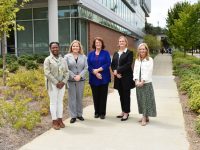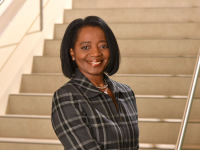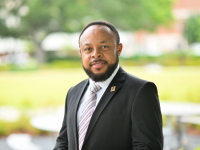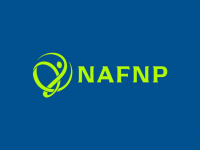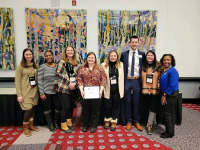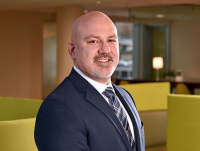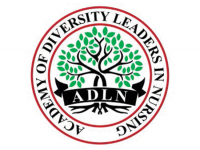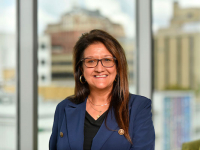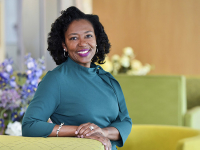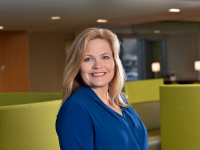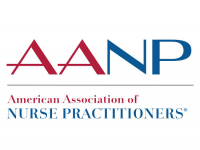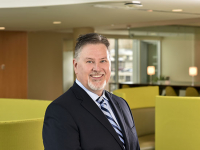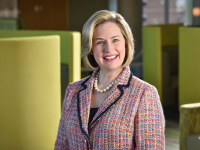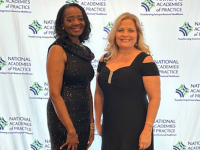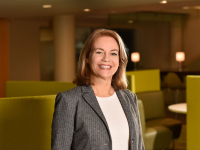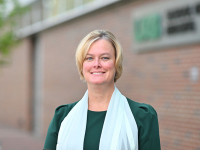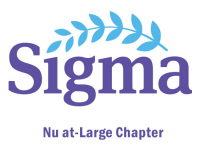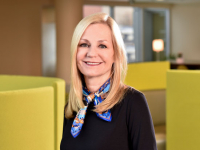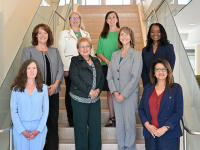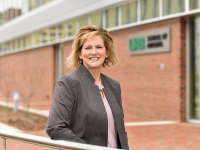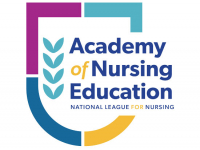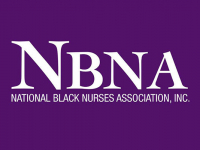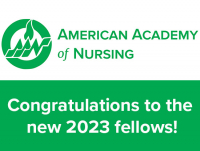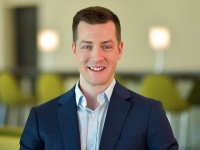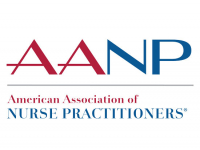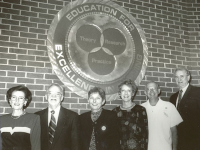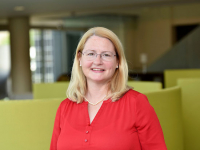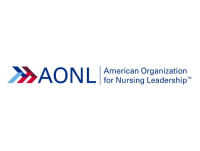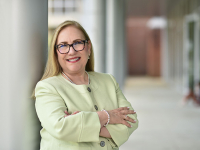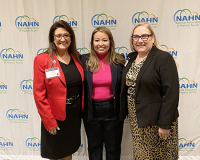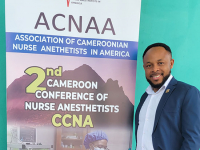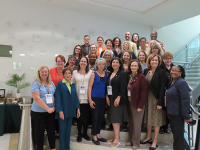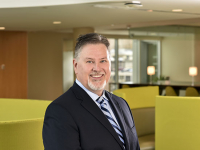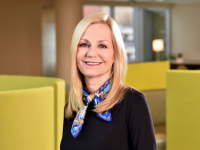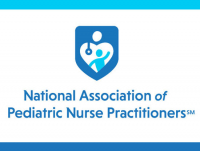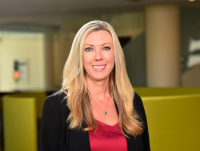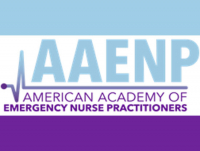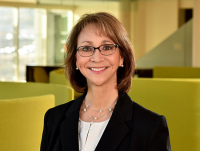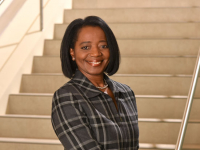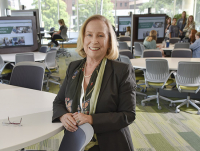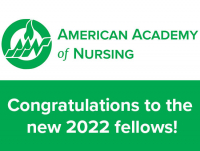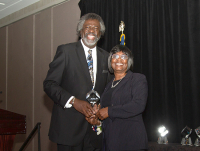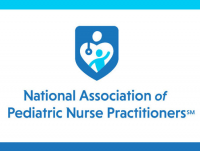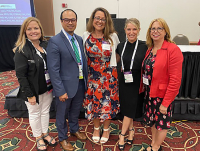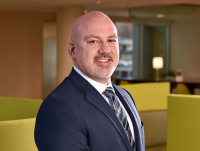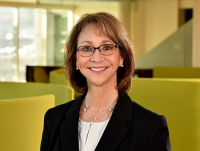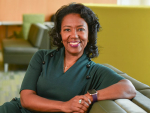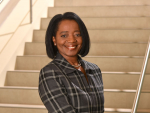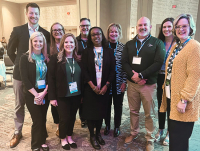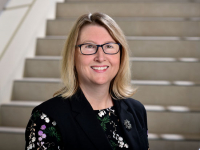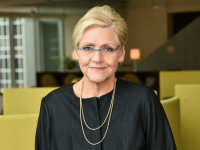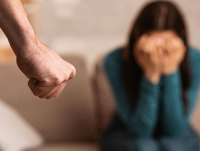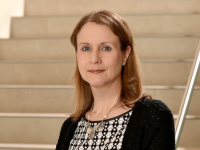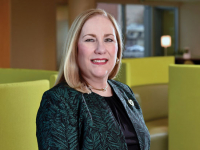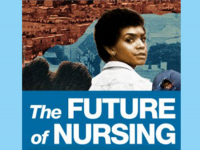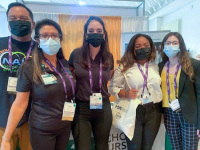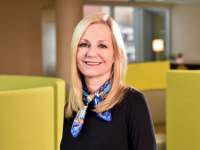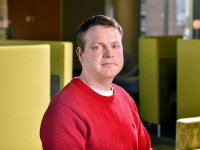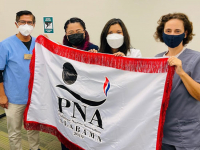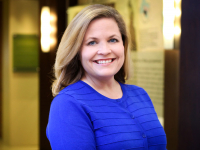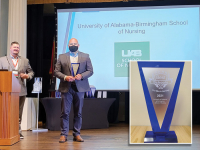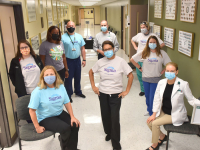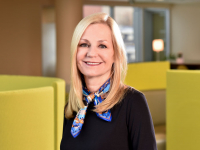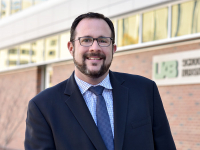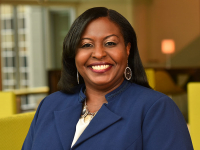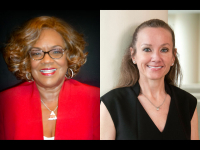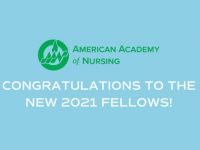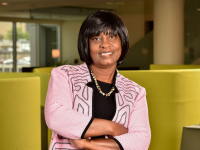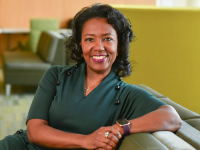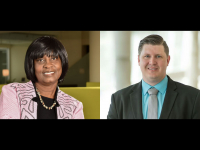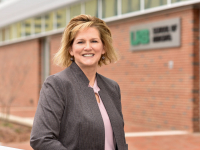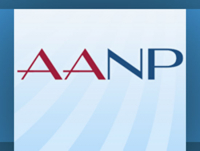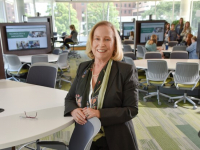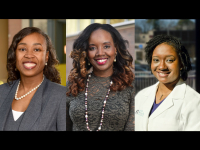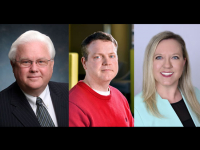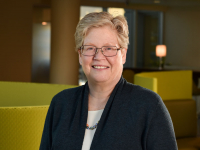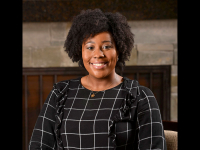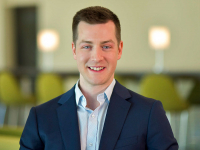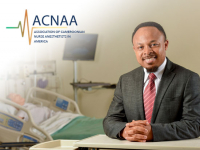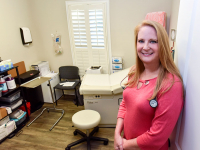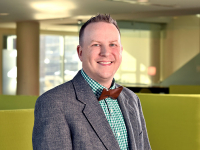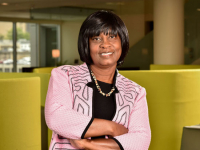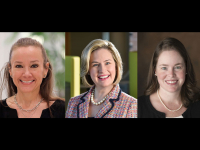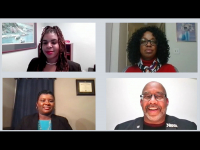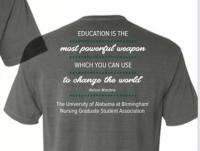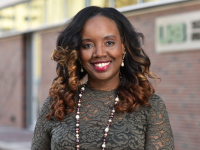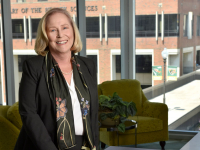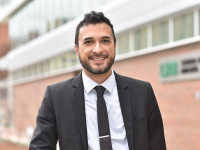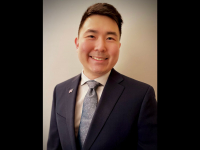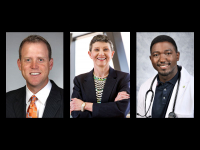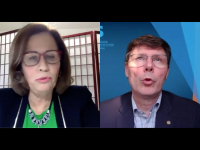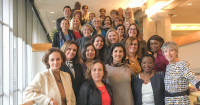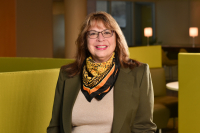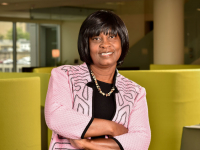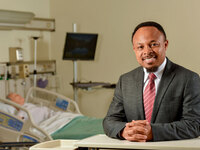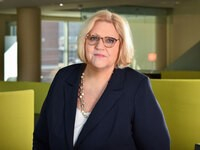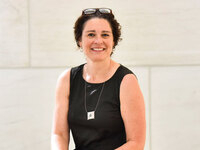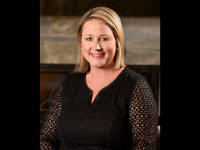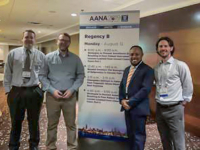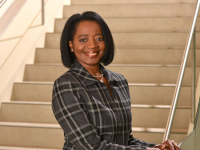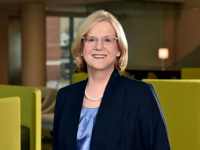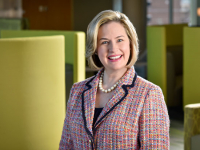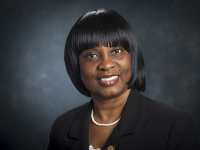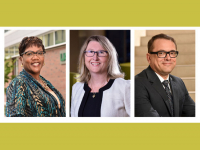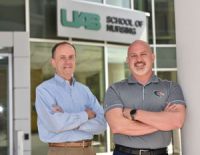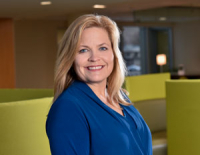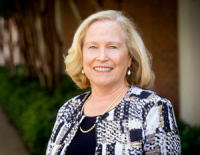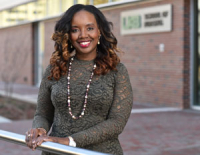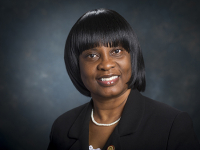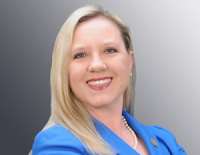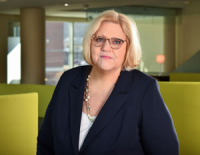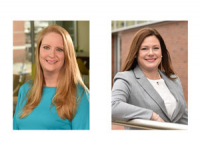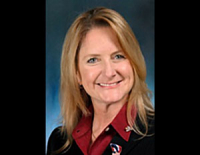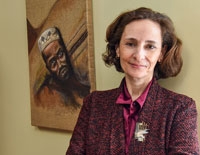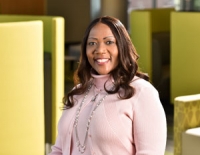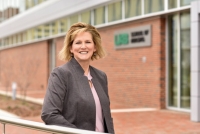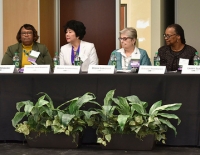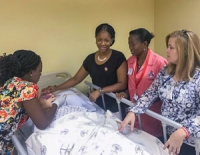 Fourth-semester BSN student Sara Beth Womack volunteered her time to help put together feminine hygiene kits on Serve Africa Day.
Fourth-semester BSN student Sara Beth Womack volunteered her time to help put together feminine hygiene kits on Serve Africa Day. To see more photos from Serve Africa Day, click here.
By Staff
Women in the Rhino Camp Refugee Settlement in northwestern Uganda lack many of life’s most basic necessities, and those inadequacies often lead to poor health and quality of life. True to the University of Alabama at Birmingham (UAB) School of Nursing’s mission of impacting health care locally and globally, students, faculty and staff recently volunteered their time to support a group that will travel to the country next year to help those women.
The volunteers packaged feminine hygiene kits to be distributed to South Sudanese refugee women by representatives of Birmingham, Alabama-based MedHope Africa in March 2018 as part of the School’s fourth Serve Africa Day. MedHope Africa’s 10-day mission trip will focus on improving women’s health and hygiene by conducting a public health intervention and a primary care clinic in an area vastly underserved medically.
Enthusiasm for the MedHope Africa initiative continues to grow within the School, with 34 volunteers, the largest number to date, helping out on Serve Africa Day.
The volunteers completed various tasks involved with putting together the feminine hygiene kits, which contain four washcloths, a bar of soap, six pairs of underwear, a sewing kit and the material to make 12 washable, reusable menstrual pads. The kits will be given to women throughout the camp as part of a women’s health and hygiene seminar.
The impact on health care they will have months down the road and many miles away hit home with the UAB nursing students as they wound thread, snipped parts of pads from donated material and counted washcloths.
“If I was in their shoes, I know how thankful I would be to have these pieces of fabric,” fourth-semester BSN student Sara Beth Womack said. “It is definitely going to help improve their health care, and it is wonderful that the School gives us opportunities to do this kind of volunteer work.
“Nursing is helping to improve the lives of others and not only in a hospital or a clinic. Nurses have a huge impact everywhere in the world, and this is a great example of that.”
The 2018 trip is a collaborative partnership between the School, the UAB School of Public Health and MedHope Africa, a non-profit organization founded by Instructor Deborah Bowers, DNP, DMin, CRNP, FNP-C, who teaches concepts of community and public health nursing to students in the School’s Bachelor of Science in Nursing (BSN) program and Accelerated Master’s in Nursing Pathway (AMNP).
Bowers, who earned her BSN from the School in 1985, her Master of Science in Nursing (MSN) in 2013 and her Doctor of Nursing Practice (DNP) in 2017, has devoted her life to providing health care in areas where access to modern medicine and public health education are limited. She traces the roots of her passion for service to her time as an undergraduate at the School.
 A volunteer helps conduct a primary care clinic as part of MedHope Africa's trip to the Rhino Camp Refugee Settlement in May 2017.“Judy Taylor was my first clinical instructor here, and she instilled in me from the outset the desire to always go the extra mile to help those who may not be able to help themselves,” Bowers said. “She taught us to be proactive and to always think ‘how can I apply what I just learned about health care on another level?’ She taught us to have a big heart, and I have taken that with me from that time forward.”
A volunteer helps conduct a primary care clinic as part of MedHope Africa's trip to the Rhino Camp Refugee Settlement in May 2017.“Judy Taylor was my first clinical instructor here, and she instilled in me from the outset the desire to always go the extra mile to help those who may not be able to help themselves,” Bowers said. “She taught us to be proactive and to always think ‘how can I apply what I just learned about health care on another level?’ She taught us to have a big heart, and I have taken that with me from that time forward.”Program Coordinator Lisa Theus, who was part of the MedHope Africa team that conducted a primary care clinic at the Rhino Camp in May 2017, is excited that the 2018 initiative will also focus on giving the refugees hope for the future.
As part of the outreach, women within the camp will be trained to cut the pads from materials such as old shirts and dresses and sew them. They can then teach other women how to do the same, resulting in a possible future revenue source for them.
“One of the most important components of this project is that it is sustainable,” Theus said. “The team will give the women the materials and teach them about making more pads for themselves and, possibly to sell to others, using materials that should be available to them.
“This is like a business starter kit we will give them that can have a profound impact on their health and livelihood.”
First-semester BSN student Caleb Foshee volunteered several hours of his time counting out needles for the sewing kits.
“It feels good to be part of something like this and help other people, even if it is in a very small way,” Foshee said. “People are hurting in that part of the world, and this is a way for people here to show that we know what is going on and that we care about it. I felt like I could donate a little of my time to be part of that, and I am glad I did.”
Bowers is not surprised that so many in the School, which prides itself on its global partnerships and initiatives such as the Pan American Health Organization/World Health Organization (PAHO/WHO) Collaborating Center for International Nursing, stepped up to help those in need across the world, and she is very appreciative of their efforts.
“I have found that the next generation of nurses are very globally minded,” Bowers said. “They have grown up in a global community with access to international information at their fingertips almost instantly.
“When you talk about doing something internationally, it’s already on their bucket list. They are looking for things to do to improve health care on the global stage, and thank goodness for them.”

